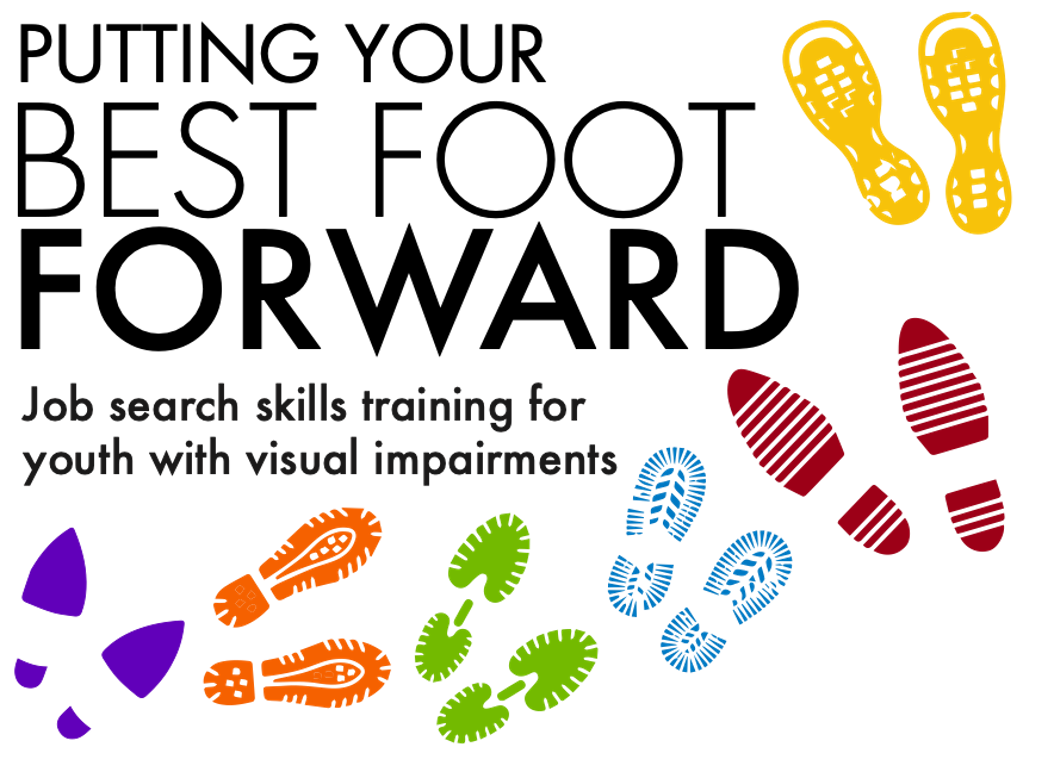NRTC Recruiting Participants for Career Mentoring Survey
The NRTC is conducting a survey about career mentorship experiences and employment. Help us identify characteristics of successful mentoring relationships and the factors that shape the quality of mentoring relationships. Your input matters, whether your experiences were positive or not.

The study is open to people with blindness or low vision, between ages 30 and 70, and who have received career mentorship. The survey will take about 10 to 15 minutes to complete and can be conveniently accessed on your computer or mobile device.
As a token of our appreciation, qualified participants who complete the survey may enter a drawing for a chance to win one of three $100 gift cards.
Click the link below to see if you qualify for this study:
https://msstate.co1.qualtrics.com/jfe/form/SV_8vJutErGmc74n6S?Source=5.
For additional information or assistance, please contact Jamie Boydstun (jboydstun@colled.msstate.edu) or call 662-325-2001.
Thank you for being a part of this important research!
The study (MSU IRB-24-005) has been reviewed by the Institutional Review Board for the Protection of Human Subjects at Mississippi State University and granted the Exemption Determination.
Current Research Highlight: Increasing Labor Force Participation
The labor force participation rates of individuals with B/LV persistently fall behind those of the general population, with about half of them not working. Addressing this disparity is the driving force behind our ongoing research project aimed at understanding and overcoming barriers to labor force participation for people with B/LV.
An upcoming manuscript, "Why I'm not Working: People with Vision Impairments Explain," in the Journal of Vocational Rehabilitation, provides results from interviews with 30 people with vision impairments who are not employed or looking for work. Most of the participants had health or other disability issues in addition to vision impairment.
Participants found it challenging to find or maintain employment that would accommodate those issues and generate an income sufficient to risk jeopardizing their current financial situation. As participants aged and they were out of work for longer periods, they became less interested in employment.
In response to research participants reporting difficulties knowing what to do and where to go to receive basic services related to their vision impairment, we are developing two YouTube videos – one explaining basic services for individuals with B/LV and one explaining vocational rehabilitation services and debunking misconceptions or misinformation that our research participants relayed to us.
The final component of the project involves the recently launched mentoring survey targeting employed or previously employed people with B/LV who have had a career mentor, as described above. Because our previous research suggests that mentoring may be valuable for employment success, this survey aims to learn more about how quality mentoring relationships are formed.
For more information and updates on our research project, please visit our research project webpage.
Training and Technical Assistance
New Online Course
Pre-Employment Transition Services: A Model for Vocational Rehabilitation Professionals Working with Students and Youth with Visual Impairments focuses on Pre-ETS, specifically for individuals who are B/LV and includes sample activities and curriculum suggestions for each of the five required Pre-ETS. (1.5 credits CRC)
All NRTC courses are available through our learning management system. For more information about our courses, visit our Frequently Asked Questions page.
Spotlight on Successful Employment
The NRTC has a new person featured in our Spotlight on Successful Employment! Rachel Christian's inspiring journey from vision loss to senior writer is a testament to her resilience and determination. She not only educates and empowers readers with her financial expertise but also serves as a model for those facing similar challenges. Learn more about Rachel and other B/LV employees on our Spotlight on Successful Employment page.
Updated Resource
We have updated our Creating an Accessible Document resource sheet. This guide was developed to provide tips for formatting, designing, and saving an accessible document and PDF. It can be found on our Accessibility Resources page.
Putting Your Best Foot Forward

Putting Your Best Foot Forward (PYBFF) is a job search skills training program for transition-age youth who are B/LV. This program was designed to help youth learn the skills needed to find a job and succeed in the workplace. PYBFF includes five units with 40 hours of content, covering topics such as preparing for an interview, disability disclosure, resume development, online job searches, and improving self-presentation. Our next PYBFF trainer workshop is scheduled for May 7-8, 2024. To learn more about PYBFF and sign up for our workshop waitlist, visit our Putting Your Best Foot Forward page.
Other NRTC News
NRTC Welcomes New Employee
The NRTC welcomes Lindsey Speights as the new Program Coordinator for the Older Individuals who are Blind Technical Assistance Center (OIB-TAC)! She will manage the projects' logistics, scheduling, activity tracking, and copy-editing tasks. Lindsey joins the team with a master's degree in Marriage and Family Counseling. She is a Nationally Certified Counselor and currently working toward gaining hours to receive her counseling license.
The NRTC is Hiring
The NRTC is currently seeking a Research Associate I, II, or III to join our team! The primary responsibility of this position is assisting with research activities and disseminating results under the direction of experienced staff members.
OIB-TAC Symposium at the AER Conference
Members of the OIB-TAC staff will be presenting a half-day symposium session at the AER International Conference on July 24, 2024. "Hands On: Teaching Braille to Adults" will provide advanced content designed for professionals with both expertise in the braille code and previous experience instructing braille. This presentation will discuss how to incorporate principles of adult learning theory into assessment and instruction and will provide a thorough overview of the key points to consider when setting goals and providing instruction to adults. Hands-on activities to reinforce learning will be included, and information about a free online continuing education course about teaching braille to adults will be shared. For more information about the conference and to register, visit AER's conference website.
Publications, Presentations, Miscellanies
Publications
Cmar, J. L., & Antonelli, K. (2024). Feasibility and accessibility of implementing a job search intervention for adults with visual impairments via videoconferencing. Journal of Visual Impairment & Blindness. Advance online publication.
McDonnall, M. C., Cmar, J. L., & McKnight, Z. S. (2024). The impact of the Workforce Innovation and Opportunity Act on agency-level vocational rehabilitation outcomes for adults and youths with blindness and low vision. Journal of Disability Policy Studies, 34(4), 299-308.
Reuschel, W., McDonnall, M. C., & Burton, D. (2023). The accessibility and usability of online job applications for screen reader users. Journal of Visual Impairment & Blindness, 117(6), 479-490.
McDonnal, M. C., Steverson, A., & Boydstun, J. (2024). Actual and preferred methods for learning to use assistive technology. Assistive Technology Outcomes and Benefits, 18, 20-35.
Crudden, A., Steverson, A., & Sergi, K. (in press). Why I'm not working: People with visual impairments explain. Journal of Vocational Rehabilitation.
McDonnall, M. C., & Cmar, J. L. (in press). Underemployment among college graduates with blindness and low vision. Journal of Visual Impairment & Blindness.
Cmar, J. L., McDonnall, M. C., & Mitchell, G. L. (in press). Predictors of job retention after onset of visual impairment in late middle age. Journal of Aging and Health.
McDonnall, M. C., & Cmar, J. L. (in press). Employment and retirement among workers who develop vision loss in midlife. WORK: A Journal of Prevention, Assessment & Rehabilitation.
Upcoming Presentations
Farrow, K., Ottowitz, J., & Abbott, P. (2024, July 24). Hands on: Teaching braille to adults [Symposium presentation]. AER International Conference, Charlotte, NC.
Upcoming Webinars
April 19 (2:00 pm CT) - Making Documents More Accessible. Whether you're preparing information for staff, community partners, or the individuals you serve, you don't need to be an accessibility expert to make your documents more accessible to readers of all abilities. Join us to explore some of the simple ways to make documents more user-friendly and where to find additional guides and resources for taking the next steps. To learn more and register, visit our event page.